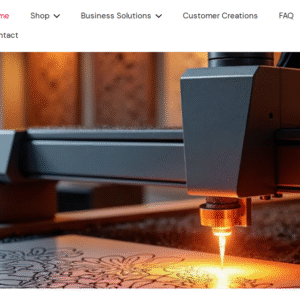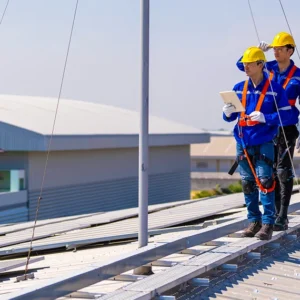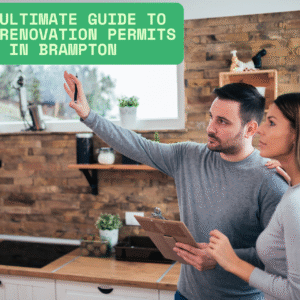Table of Contents
ToggleWhat is a Heat Pump?
How Heat Pumps Work
Imagine transferring heat like moving air from one room to another. That’s what a heat pump does—it takes heat from outside and brings it inside in winter, and reverses the process in summer. It doesn’t create heat like a furnace; it just moves it, making it super efficient.
Types of Heat Pumps
-
Air Source Heat Pumps: Most common; extracts heat from air.
-
Ground Source Heat Pumps: Pulls heat from underground.
-
Hybrid Systems: Combines traditional and pump-based systems for flexibility.
Why Heat Pump Service Matters
Efficiency and Energy Savings
A well-maintained heat pump runs like a dream—quiet, efficient, and effective. But neglect it, and you’re in for high energy bills and spotty heating or cooling. Regular service ensures it’s performing at its peak.
Extending System Lifespan
Servicing your heat pump is like changing oil in your car. Miss it, and the engine suffers. The same goes for your heat pump. Annual checkups can stretch its life beyond the usual 15 years.
Air Source Heat Pump Service Explained
What is an Air Source Heat Pump?
An air source heat pump Service (ASHP) draws heat from the outside air—even when it’s cold—and moves it inside your home. It’s an eco-friendly alternative to gas or oil heating systems.
Routine Service Checklist
-
Clean filters and coils
-
Check refrigerant levels
-
Inspect fan motors
-
Test thermostat calibration
-
Examine electrical connections
Signs Your Heat Pump Needs Servicing
-
Inconsistent temperatures
-
Spikes in energy bills
-
Loud or strange noises
-
Ice buildup on the outdoor unit
Finding a Reliable Heat Pump Service Near Me
What to Look for in a Local Service Provider
-
Certification and licensing
-
Years of experience
-
24/7 emergency support
-
Positive customer reviews
Questions to Ask Your Technician
-
Are you certified to work on my heat pump brand?
-
What’s included in your service package?
-
Do you offer maintenance plans?
The Real Cost of Air Source Heat Pump Installation and Maintenance
Installation Cost Breakdown
Installing an air source heat pump can range from $3,000 to $12,000, depending on your home’s size and system type. Ductless mini-splits are usually cheaper.
Regular Maintenance Costs
Expect to pay $150–$300 annually for servicing. It’s a small price for peace of mind and efficiency.
Potential Hidden Charges
-
Emergency call-outs
-
Replacement parts
-
Travel fees (if outside service radius)
Heat Pump Installers – Choosing the Right One
Certified vs. Non-Certified Installers
Only go with certified pros. They know what they’re doing, and most manufacturers require certified installers to honor warranties.
Reviews and References Matter
Check online reviews, ask for references, and look for verified installations. A little homework goes a long way.
How Often Should You Service Your Air Source Heat Pump?
Recommended Service Schedule
Have a technician check your system once a year. Fall is ideal—it preps your system for the cold season.
Seasonal Checkups
-
Spring: Clean filters and coils
-
Fall: Full inspection and tune-up
DIY Maintenance Tips for Homeowners
Cleaning Filters
Just like your car’s air filter, your heat pump’s filters need cleaning every 1-2 months. Dirty filters = poor performance.
Checking Outdoor Units
Keep debris like leaves and snow away from the outdoor unit. Clear airflow is a must for efficiency.
When to Call the Pros
If it’s leaking, icing up, or making weird noises—call the pros. Don’t guess; get it checked.
Common Heat Pump Issues and Fixes
Poor Heating or Cooling
Could be low refrigerant, clogged filters, or a faulty compressor. A quick service visit can diagnose and fix it.
Strange Noises
Grinding, buzzing, or clicking? That’s not normal. It could be anything from loose parts to electrical issues.
Frozen Units
Ice on your outdoor unit? Could be poor airflow or refrigerant problems. Don’t ignore it—get it checked.
Environmental Benefits of Air Source Heat Pumps
Lower Carbon Emissions
They don’t burn fossil fuels, making them cleaner than gas or oil heaters.
Reduced Energy Consumption
Using just electricity, they can be 300% more efficient than traditional heaters. That’s a win for your wallet and the planet.
Government Grants and Incentives
Eligibility Criteria
Many countries offer incentives for switching to heat pumps. Check local programs and requirements.
How to Apply
Typically, you’ll need:
-
Proof of residence
-
Installer certification
-
Purchase receipts
Air Source Heat Pump vs. Traditional HVAC
Cost Comparison
Though upfront costs are higher, long-term savings make ASHPs a smart investment.
Performance Analysis
They work well in moderate climates and newer models are efficient even in freezing temps.
Future Trends in Heat Pump Technology
Smart Controls
Wi-Fi thermostats and smartphone apps let you control your pump from anywhere.
Integration with Solar Panels
More homeowners are pairing heat pumps with solar for 100% renewable heating.
Conclusion
Heat pumps—especially air source models—are the future of home heating and cooling. With regular service, they can last over a decade, cut your energy bills, and reduce your carbon footprint. Whether you’re installing a new heat pumps Nottingham system or maintaining an old one, choosing the right installer and service plan is key to making the most out of your investment. Don’t wait until something breaks—treat your heat pump to the TLC it deserves, and it’ll return the favor with cozy winters and cool summers for years to come.
FAQs
How long do air source heat pumps last?
With proper maintenance, they can last 15–20 years or even longer.
Is an air source heat pump worth it?
Absolutely! Lower energy bills, fewer emissions, and long-term savings make it a great investment.
Can I service my heat pump myself?
You can handle basic tasks like cleaning filters, but for serious stuff—call a pro.
Do heat pumps work in winter?
Yes, modern units work efficiently even in sub-zero temperatures.
How do I find a qualified installer near me?
Look online for certified local pros with solid reviews and experience in your specific brand.





